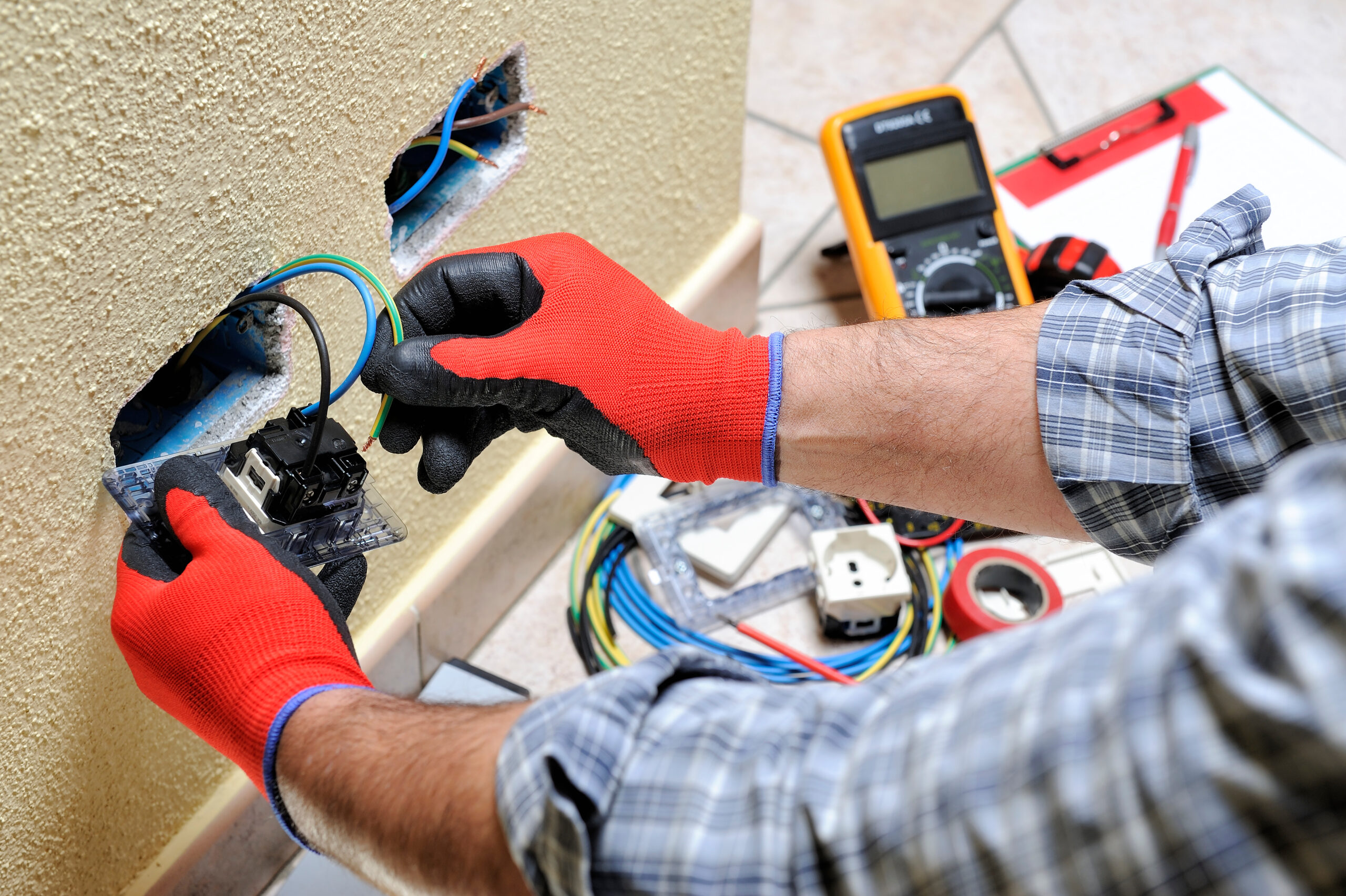How Do Large Office Buildings Keep Their Electrical Systems Running Smoothly?
Electrical Systems

In today’s fast-paced business world, large office buildings rely heavily on efficient and uninterrupted electrical systems. From lighting and climate control to server rooms and security systems, every corner of a modern office depends on a stable electrical infrastructure. Keeping these systems running smoothly isn’t just about convenience—it’s essential for safety, productivity, and business continuity. That’s where commercial electricians come into play.
Maintaining a functional electrical system in a high-demand environment requires expert planning, regular maintenance, and rapid response to issues. In this article, we’ll explore the critical roles commercial electricians play and the strategies they use to keep large office buildings operating efficiently.
The Complexity of Electrical Systems in Large Buildings
Electrical systems in large office buildings are far more complex than those in residential or small commercial spaces. They include high-voltage lines, extensive lighting grids, emergency systems, data centres, elevators, and HVAC systems. Any disruption can impact hundreds—or even thousands—of people.
These systems must meet strict regulatory standards and be designed for scalability, energy efficiency, and redundancy. Managing them requires a deep understanding of both the building’s infrastructure and the evolving demands of modern office operations. That’s why experienced commercial electricians are essential.
Planning and Installation by Commercial Electricians
The first step in keeping an electrical system running smoothly begins during the planning and construction phases of a building. Commercial electricians are involved from the start, working with engineers, architects, and developers to design systems that are safe, reliable, and suited to the building’s purpose.
Their responsibilities include:
- Designing energy-efficient layouts for lighting, outlets, and equipment
- Installing main switchboards, distribution panels, and backup systems
- Planning for future growth or expansion of the building’s electrical capacity
- Ensuring all systems meet local codes and safety standards
By focusing on long-term needs, commercial electricians help ensure that the electrical system won’t just work today, but continue to perform reliably for years to come.
Preventative Maintenance: The Backbone of Reliability
Even the best electrical systems need regular maintenance to prevent failures. Commercial electricians play a central role in routine inspections and servicing. Preventative maintenance not only minimises the risk of downtime but also helps identify small issues before they become major (and expensive) problems.
Common preventative tasks include:
- Inspecting circuit breakers and switchboards for wear
- Checking grounding and bonding systems
- Testing emergency lighting and backup power supplies
- Thermographic scanning to detect overheating components
- Cleaning electrical panels and ensuring proper ventilation
By conducting these checks regularly, commercial electricians can ensure that systems remain stable and compliant with safety regulations.
Rapid Response and Troubleshooting
Despite preventative efforts, problems can still arise—especially in high-use environments. When an issue occurs, whether it’s a power outage, blown circuit, or system malfunction, commercial electricians are called in to diagnose and fix the problem quickly.
Their ability to troubleshoot complex systems is critical in environments where every minute of downtime could mean lost productivity or data. Experienced electricians know how to assess the source of the issue, implement a fix, and test the system to prevent recurrence—all while keeping disruption to a minimum.
Upgrades and Energy Efficiency
Another way office buildings stay functional and cost-effective is through system upgrades. Technology evolves, and so do energy standards. Commercial electricians assist building managers in updating outdated systems with energy-efficient alternatives, such as LED lighting, smart controls, and improved power management systems.
These upgrades don’t just improve reliability—they reduce operating costs and help buildings meet environmental sustainability goals. Commercial electricians understand how to implement these changes without disrupting daily operations, ensuring a smooth transition with minimal impact.
Compliance with Safety and Legal Standards
Large office buildings must comply with strict legal and safety standards regarding their electrical systems. From fire safety systems to emergency backup power, compliance is non-negotiable. Commercial electricians are trained to ensure that every system is not only functional but also meets these crucial requirements.
They also help prepare buildings for electrical safety audits and can provide documentation and testing results to satisfy regulatory authorities. This reduces liability and gives building owners and tenants peace of mind.



